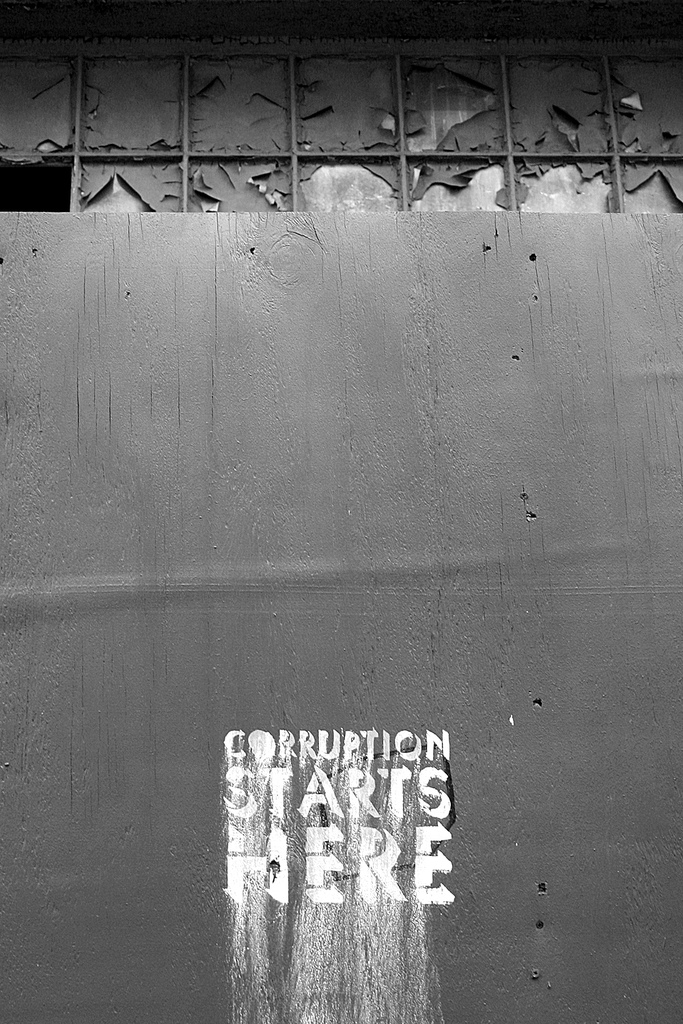The current situation in the Eurozone and its reception throughout the world remains twofold: while many people claim that the European economy is gaining momentum, skepticism largely dominates the Greek economy, which has carried heavy financial burden and wavers on the verge of collapse. Therefore, it is no surprise that when most people think about the European economic crisis, especially from 2008 through 2012, the Greek case immediately comes to mind.
For the most part, there is reason to associate Greece so readily with turmoil and economic depression given the state of the country over the past few years. According to recent news reports of looming austerity measures and weakening internal structure, Greece’s ability to stay afloat is being put to the test. What exactly will new developments mean for Greece in the long run, and how will these situations play out in the Eurozone? At the moment, new issues within the Greek government and economy are overshadowing the clear answer to this question. As time progresses, so too will the problems currently affecting Greece; therefore, only when Greece fully realizes these developments will possible solutions begin to unfold.
For those unfamiliar with the specific events that led to the Greek economic depression, you need not look any further than a few events. The first major blow to the Greek economy came early in 2009 when George Papandreou’s new Socialist government caused the country’s debt-to-GDP ratio to skyrocket for the first time in years. A few months later, Greece’s credit rating substantially dropped after Moody’s and Fitch declared that the country was quickly losing its foothold in the European economy. If this wasn’t crippling enough, the situation worsened when Greece announced a budget deficit that didn’t match that of its financial records.[1] Out of all of Greece’s financial faults, this action proved to be the driving force behind a decade of increased sales taxes, tariffs, and other austerity measures. Other minor economic issues continue to occur behind the scenes; however, the aforementioned events truly highlight how Greece ended up with a downwardly spiraling economy in the first place.
As of late, the outflow of media information from Greece has been at a standstill. Has it ever occurred to the American population that media coverage in Greece is slowly vanishing? In the midst of the Eurozone crisis, Greece proves to be at the helm of hardship and instability, and over the past few years, countless articles have focused on the country’s economic decay and its impact on surrounding European Union members.
Though these news stories still remain pertinent, the way in which the country’s crisis is unfolding continues to change. According to recent international reports, these noticeable changes can be seen in violent attacks aimed at journalists studying Greece’s economic environment.[2] What was once a protest-based reaction by the Greek public is quickly becoming an attack on media freedom and other rights. Further investigation of the situation reveals that an anarchist group by the name of Lovers of Lawlessness carried out the attacks.[3] The nature of this crime is worrying reporters and government officials alike, who condemn the actions and fear the country is headed towards an even more dangerous climate. In an effort to keep further attacks at bay, Greek police are working hard to prevent journalists from covering stories until progress is made. Until these efforts are realized, Greek media coverage will continue to asphyxiate under the country’s changing socioeconomic environment.
Terroristic in nature, these problems are concerning lawmakers all across Greece, and many fear the possibility of a new wave of radicalism emerging into something Greek editor Panos Garganas claims to “make the ruling class panic even more.”[4] After a crude bomb detonated at one of Athens’ largest shopping malls, causing major injuries to two security guards, damage exceeding thousands of euros, and utter chaos, the nationwide crackdown on lawless behavior reached a highpoint. For many government officials and law enforcement agents, detaining suspects represents an ongoing battle as attacks spread to government offices, banks, businesses, and other establishments.
Certainly, while such acts of aggression highlight the violence of Greece’s far right, namely the Golden Dawn, recent bombings and threats paint a bigger picture. Greece’s economic environment has enabled violence and despair to sweep across the nation, an outcome that would have arguably never materialized a decade ago. As economists and analysts continue to closely monitor Greece’s current status, the implication of violence as a means to effectuate change in the government will mostly likely continue.
Even though the news coverage in Greece has been overwhelmingly negative, several recent reports offer a shimmer of hope. Alexis Tsipras, a 38-year-old opposition leader in Greece who is running to become the country’s next prime minister, called for a meeting last month to ease the country’s crippling debts.[5] Ever since Tsipras and his party, the Syriza, gained popularity in the June 2012 elections, the push for Greece’s government to overcome its indebtedness has gained significant ground. In particular, Tsipras’ rise as a political figure in Greece has left the country unable to handle surmounting financial and international pressures. Basing his platform off of these ideas, Tsipras may have potential in Greece’s next election, which could mean big news for restoring the country’s toppling economic structure back to normal.
In addition, the Syriza party hopes to address the austerity measure issue of all European nations currently suffering. As Tsipras suggests, “we are suggesting an overall plan for a European solution, a European conference on debt that would include all of the countries of the region facing a significant debt issue.”[6] Though this transformation will take time to transpire, should the New Democracy Party lose major support, it offers Greek citizens a potential sigh of relief.
The possibility of a new political structure and agenda for Greece remains an unmoving piece of news for most Greek citizens who feel major change is not what the country necessarily needs. This viewpoint is additionally supported by the fact that austerity measures will not simply cease to exist if the Syriza party comes to power. To add to the optimism, however, is the development of a gold mine in the northern part of the country that some analysts feel could generate nearly 1,500 jobs by 2015.[7]
Judging from the country’s staggering 50 percent rate of unemployment among middle-aged citizens, even a temporary incline in job growth would be beneficial. Even though the environmental impact of the mine has many locals concerned, tapping into the gold reserves is a proposition backed by tremendous support. BMO Capital Markets, a group that lends corporate, domestic, and international clients information about products and services, states that the production of more mining jobs will have a trickle-down effect on the rest of the economy, ensuring that employment as a whole will appreciate.[8]
From a purely economic standpoint, the European Union’s decision to extend Greece’s time allotment for budget cuts is proving effective. The decision, which was made roughly two months ago, calls for Greece’s debt to reduce by 120 percent of GDP by the year 2022. Olli Rehn, the E.U. commissioner for The Economic and Monetary Union, claims, “It is time to debunk the perception that no progress has been made. This perception is damaging, it is unfair, and it is simply wrong.”[9] In light of the current economic conditions in Greece, flexibility by the European Union is an appropriate course of action that will surely assist in the country’s recovery process. Also, an extension for budget cuts will buy Greece time to realize its socioeconomic priorities, which, at the moment, seem to be in disarray.
The news reports concerning the economic crisis in Greece can easily be misconstrued at face value. One article may claim that Greece is well on its way to recovery, while another may claim that the economic conditions in Greece are worsening by the day. Even though these articles provide an interesting read, they fail to portray the overall crisis that is currently plaguing Greece. Thus, what is the likely outcome of Greece’s financial meltdown? Granted, there is no solitary answer to this complex and multifaceted question. The onset of violence and protests is an issue that will continue to persist, and Greece’s government doesn’t provide enough political stability to eradicate these issues in the interim.
On the other hand, a temporary fix to the economy may be to grant Greece more time to settle its budget and debt problems. Though this proposed solution wouldn’t resolve the entire crisis, it would definitely point Greece in the right direction towards improvement. Walking down countless streets in Athens or Thessaloniki reveals a shocking display of stores and small businesses closed due to the poor economic environment. Restoring these jobs would mean unprecedented improvement within the economy, and the confidence of both consumers and workers would be reinstated. I know that these resolutions are not the answers Greece is looking for due to the complexity of such economic troubles. It is certain, though, that solving Greece’s situation will require a multitude of steps, and only when these steps are fully realized will the economic burden atop Greece slowly be lifted away.
Scott Oldano
International Business ’17
[1] “Timeline: Key Events in Greece’s Financial and Political Crisis.” www.globalnews.ca. Associated Press, n.d. Web. 28 Feb. 2013.
[2] Reporting., Liz Alderman; Dimitris Bounias Contributed. “Journalists in Greece Are Becoming Targets.” The New York Times. The New York Times, 13 Jan. 2013. Web. 26 Feb. 2013.
[3] Reporting., Liz Alderman; Niki Kitsantonis Contributed. “Shots Fired Into Offices Of Greek Governing Party.” The New York Times. The New York Times, 15 Jan. 2013. Web. 26 Feb. 2013.
[4] Ward, Patrick. “Unprecedented General Strike in Greece.” |11Feb12|Socialist Worker. N.p., n.d. Web. 26 Feb. 2013.
[5] Smith, Helena. “Greek Opposition Leader Calls for European Debt Conference.” The Guardian. Guardian News and Media, 12 Sept. 2012. Web. 26 Feb. 2013.
[6] Gladstone, Rick. “Greek Opposition Leader Seeks Conference on Debt.” The New York Times. The New York Times, 26 Jan. 2013. Web. 26 Feb. 2013.
[7] Biesheuvel, Thomas. “Greece Welcomes Gold Miners to Rank First in Europe: Commodities.” Bloomberg. N.p., n.d. Web. 26 Feb. 2013.
[8] KANTOURIS, COSTAS. “Greek Gold Mine Savior to Some, Curse to Others.” Yahoo! News. Yahoo!, 11 Jan. 2013. Web. 26 Feb. 2013.
[9] “Vice-President Rehn’s Remarks at the Eurogroup Press Conference.” EUROPA. N.p., n.d. Web. 26 Feb. 2013.



